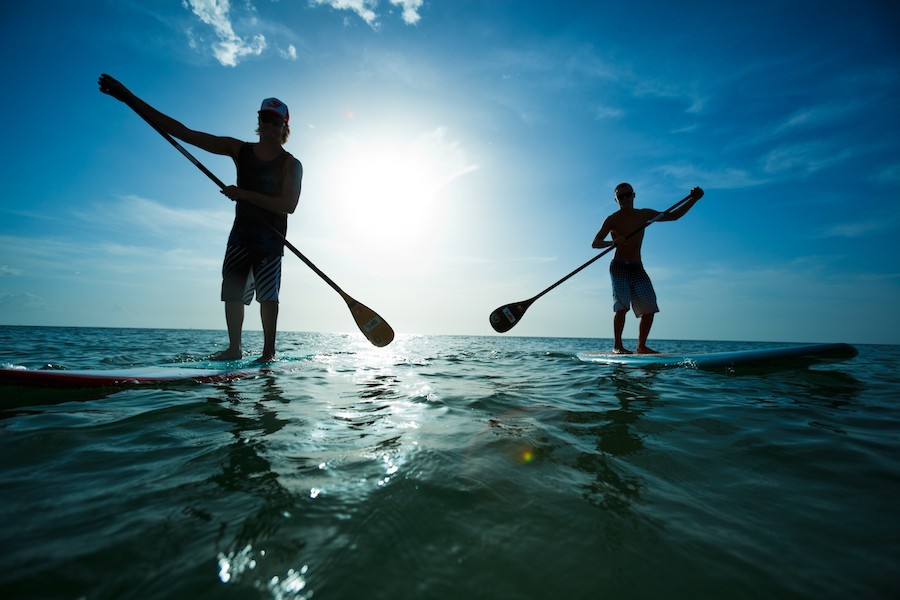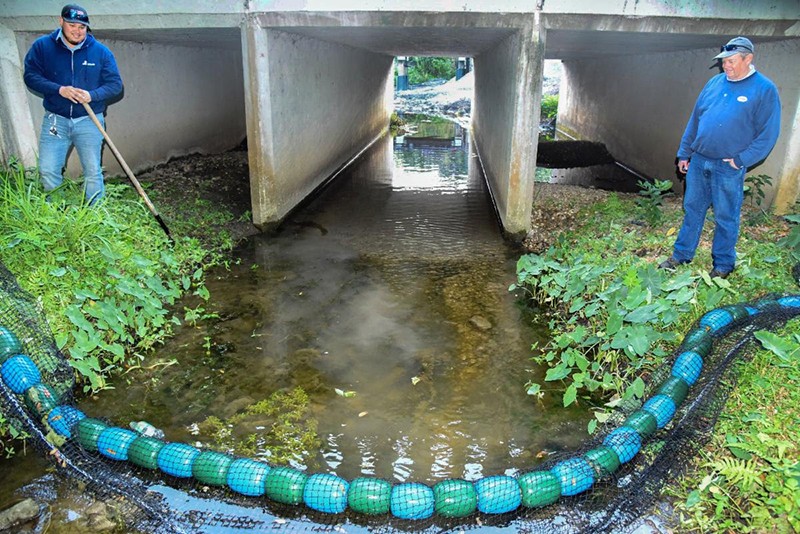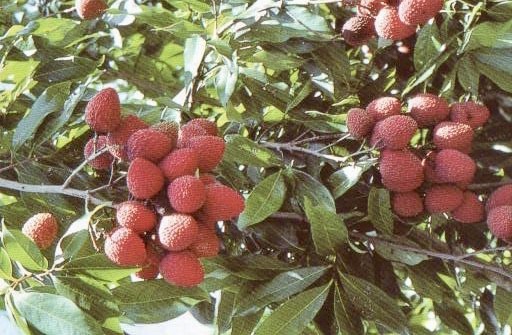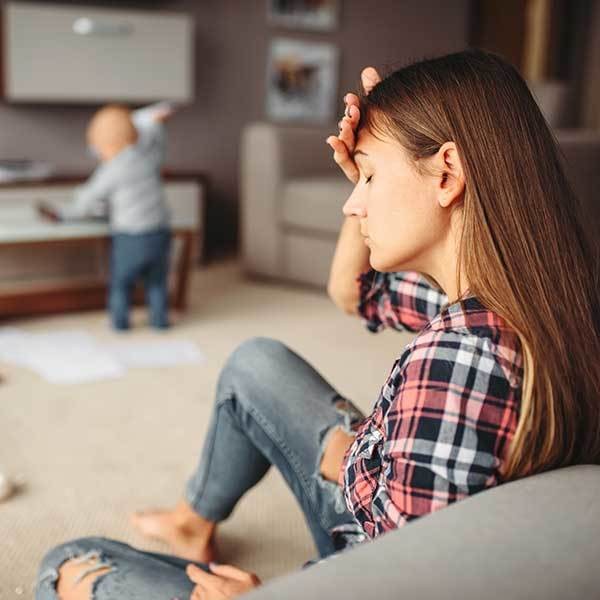SRQ DAILY Apr 23, 2020
Freshly Squeezed Content Every Morning

"At a time when we're discussing public health issues, this has to do with mental health. People are so cooped up they not only have cabin fever, but they are almost getting used to being isolated."


There won’t be a drum circle any time in the near future, but starting Monday it will be legal once again to walk the beach.
Sarasota County Commissioners said the first steps in restoring normalcy following the COVID-19 pandemic include transitioning to open beaches. All beaches in the county have been closed since March 22, when concerns about mass gatherings of spring breakers and the spread of a coronavirus inspired a shutdown of the coasts.
But a month later, Commissioners say its important residents have access to the shore.
“At a time when we’re discussing public health issues, this has to do with mental health,” said County Commissioner Nancy Detert. “People are so cooped up they not only have cabin fever, but they are almost getting used to being isolated..”
The beaches won’t be open without restrictions. For the moment only essential activity, meaning physical activity like walking, surfing and even fishing, will be allowed. But no one can lounge on the beach and social distancing will still be enforced. Commissioners made clear a tournament organizer who still wanted a volleyball event to go forward would not be allowed to do so.
And notably, the county won’t open parking lots. That generated discussion about whether it limits access only to those near the beach and sparked some concern people will park on private property. But Commissioner Al Maio said he flet it was important to have a gradual reopening, and said commissioners can revisit the parking issue in early May.
A statewide stay-at-home order remains in effect in Florida for the moment, but it doesn’t discuss beaches and parks. Gov. Ron DeSantis has left those decisions to local governments.
County Commissioner Christian Ziegler noted that Sarasota County never has completely closed its parks in the pandemic, and now will allow the same limited activity on the beaches as already occurs on the Legacy Trail, Nathan Benderson Park and other public facilities.
The decision on Wednesday sparked some backlash, with Sarasota County trending on Twitter statewide. “I live in the state of Floridaman,” said resident Jan Moss. “I am certain they are about to do something deadly.”
County Administrator Jonathan Martin stressed if municipal leaders do not want beaches in cities open, the county will honor that. Lido Beach in the City of Sarasota will remain closed, and Venice will impose more restrictions than other parts of the county, including limiting boat ramp access.


Sarasota County's ongoing commitment to water quality reached another milestone with the purchase of 10 floating waste collection systems called WaterGoats. The floating waste collection systems, which will be installed in local waterways, were first recognized as a solution through data collected by the Floatable Pollution Prevention Program. With over a year of data collection, the program helped identified 10 locations compatible for device installation. WaterGoats get their name for "eating" litter that doesn't belong in our waterways. WaterGoats skim the top eight inches of the water to accumulate trash for collection and disposal, helping to further prevent pollution in waterways.
"These devices will be a tremendous help because they collect floating trash debris that could impact area waterways or restrict water flow. WaterGoats are easy to install and maintain making them a sustainable option," said John Ryan Sarasota County Public Works Stormwater Environmental Utility manager. "We're anticipating over 400 pounds of pollution being prevented from entering the gulf and bay waters once all of the installations are complete."
Sarasota County installed the first WaterGoat in the Whitaker Bayou area on March 12, and is expected to collect more than 10 pounds of trash per week. Two more units were also installed in the Hudson Bayou Project which will impact the bay and surrounding area. The remaining units are scheduled for installation through this year and staff will continue to monitor data on each site. The City of Sarasota partnered with Sarasota High School and the county, to purchase and install a WaterGoat at the school, adding data points and local impacts to waterways into science curriculum.
"We're grateful for the partners who helped make this project a reality, including The Recycling Partnership, Sarasota High School, Sarasota County Stormwater, and Watergoat, LLC.," said Jeff Vredenburg, sustainability program educator for the City of Sarasota. "During the lifetime of this device, it will keep thousands of pounds of trash from entering our waterways and will provide invaluable educational opportunities for local students on pollution prevention. "
According to Mark Maksimowicz, the leader of the non-profit WaterGoat, more than 100 tons of trash have been harvested from the 24 WaterGoats installed at major drainage outfalls into Tampa Bay. WaterGoats can be found in Hillsborough and Pinellas counties so far, with Sarasota the most recent addition.
To learn more about the county's water quality initiatives visit scgov.net or call the Sarasota County Contact Center at 941-861-5000. 
Pictured: Sarasota County WaterGoat installed in Whitaker Bayou area.




Photo courtesy of Crowley Nursery, 16423 Jomar Road Sarasota, 941-322-0315.


Just about a week until the 2020 Giving Challenge and we're getting more and more excited! It's unfortunate that the circumstances prevent us from having an open house or some other type of face-to-face gathering, but our staff and youth have come up with some fun ways to engage with all of you on social media! Be sure to follow ALSO Youth on Facebook and Instagram.
Remember: starting at 12pm April 28th and ending at 12pm April 29th, donations $25-100 are MATCHED thanks to the Patterson Foundation and Community Foundation of Sarasota County. For a small organization like ALSO Youth, every donation goes a long way, and donating during the Giving Challenge DOUBLES your impact! Your contributions will especially help us while we expand our online support for youth due to the pandemic.
Donations will only be matched through our Giving Challenge profile page (NOT the ALSO website), so click below to bookmark our donation page for the big day. 


Trucks delivering roof panels to Lift Station 87 will occasionally impede traffic on Mound Street at Luke Wood Park throughout the day on today, Thursday, April 23. Flatbed semi-trailers will be delivering precast, hollow-core concrete roof panels to the Lift Station 87 site. Flaggers will direct traffic as each truck arrives, so they can safely back into the site and offload the panels, which range in size from 30 to 48 feet long. Motorists are urged to use caution and be prepared to stop while driving in the area. As the new lift station nears completion, the contractor’s work schedule proposes the closure of Osprey Avenue beginning May 26, 2020, from just north of Hudson Bayou to Alta Vista Street. The closure will allow crews to replace water and sewer pipelines as well as install new manholes and valves at the intersection of Osprey Avenue and Lincoln Drive. Once that is completed, crews will excavate and install gravity sewer mains along Alta Vista, Pomelo Avenue and Pomelo Place. The partial closure of Osprey Avenue will continue through March 2021 to facilitate the water and sewer utility work in the area.
Variable message boards will be placed in the area next week to inform motorists, bicyclists and pedestrians. Traffic will be directed to Mound Street/US 41 to avoid neighborhoods. The city will use temporary speed bumps to deter traffic from taking shortcuts through neighborhoods and signage to clearly identify business access on Osprey Avenue. When complete, Lift Station 87 will handle a third of the City’s wastewater flow, and the new design ensures reliable and effective operations, even during a Category 3 hurricane. Lift Station 87 will replace Lift Station 7, located at 935 Pomelo Avenue. The project is being built in phases to protect the city’s investment. Phase 1 (Microtunnels under Hudson Bayou, Osprey Avenue and Luke Wood Park) was successfully completed in June 2017. Phase 2 (Lift station 87 wetwell, building and site landscaping) is scheduled for final completion in early fall 2020. Phase 3 (Open cut gravity sewer pipeline construction south of Hudson Bayou and demolition of Lift Station 7), is scheduled to begin in summer 2020 with completion anticipated early in 2021. Once the entire project is completed, wastewater flow will be completely and permanently redirected from Lift Station 7 to Lift Station 87. 


How to get your needs met and your sanity back during social isolation. An 8-week course with Joe Newman and Tim Seldin. Parents are under tremendous pressure to meet impossible standards: to be teacher; entertainer; and homemaker—all while still expected to stay in shape and hold down a job. The reality is, many parents are struggling in all these areas. This course is designed for parents of children who are not cooperating—children who are not playing by the rules. It provides actionable tools to get your own needs met, make a schedule your kids will actually follow, and help your family use this crisis as a catalyst to become stronger and happier than ever.
Class schedule: Eight Consecutive Tuesdays—April 28, May 5, May 12, May 19, May 26, June 6, June 9 and June 16 at 9pm EST. 

Pines of Sarasota is a rehabilitation and senior care community that provides short-term outpatient rehabilitation services, skilled nursing, memory care, and assisted living to elder individuals in the surrounding community. The organization is governed by a volunteer Board of Directors who oversee management and hold ultimate fiduciary responsibility. Made up of civic leaders, the group serves with distinction but without recompense following a 69-year tradition of service to Pines of Sarasota and the community it serves.
“We are pleased to welcome Damon to our Pines of Sarasota Board of Directors,” said President and CEO, Mike Ward. “His significant knowledge and unique perspective in the senior living development space are a tremendous asset to us as we transform our campus and secure our mission of compassionate care well into the future.”
Studio+, an Architecture and Interior Design firm, creates design solutions that transform lives and offers expertise in both healthcare and senior living design. This opportunity with Pines of Sarasota will enable Romanello to serve and support the organization while helping to positively impact the lives of its residents and support the strategic goals of the organization. His involvement upholds Studio+’s mission to give back to the community in areas where they can offer their expertise, provide insight, and ultimately make a difference. 

Sarasota Orchestra clarinetist Laura Stephenson Petty has showered her plants with performances. During this time Laura may find out whether houseplants really do thrive in the presence of classical music. Listeners can join in to hear a different side of the great opera composer Rossini in this video vignette. 

Responding to the unprecedented challenge of fighting coronavirus disease 2019 (COVID-19), the U.S. Government is supporting a national Expanded Access Clinical Trial Program to collect and provide convalescent plasma to patients in need across the country. Blood (plasma) from recovered COVID-19 patients contains antibodies that may help fight the disease. Manatee Memorial Hospital has joined this clinical trial program coordinated by the Mayo Clinic and American Red Cross to collect and administer COVID-19 convalescent plasma to eligible patients.
Eliot Godofsky, MD, Infectious Disease and the hospital’s Clinical Investigator, will oversee the clinical trials at Manatee Memorial Hospital. Dr. Godofsky and hospital staff will work together on the screening of recovered COVID-19 positive patients to be part of the program collection, the administration of the plasma and trial results. The hospital will work collaboratively with industry, academic, government partners and hospitals throughout the country on our results.
Only eligible hospitalized patients referred by their health care provider will participate in receiving convalescent plasma. Hospitalized patients are eligible to receive convalescent plasma if:
They are 18+ years of age
They have laboratory-confirmed diagnosis of infection with severe acute respiratory syndrome coronavirus 2 (SARS-CoV-2), the virus that causes COVID-19
They are admitted to an acute care facility for the treatment of COVID-19 complications
They have severe or life-threatening COVID-19, or judged by the treating provider to be at high risk of progression to severe or life-threatening disease
There is informed consent provided by the patient or healthcare proxy
“COVID-19 convalescent plasma (CCP) has the potential to offer effective therapy for patients with severe or life-threatening infection, due to the current pandemic utilizing healthcare systems, already in place. The rate-limiting step in the process is the availability of blood type-matched plasma from COVID-19 recovered donors. It is critical that persons recovered from documented or presumptive COVID-19 infection contact their local blood bank or the American Red Cross to be screened for antibody levels indicative of their ability, to be a plasma donor. Individual donors are able to typically provide enough plasma for three doses of CCP. There is no better way for a community to step up and help take care of its’ own,” stated Eliot Godofsky, MD.
Note: COVID-19 convalescent plasma has not yet been demonstrated to provide clinical benefit in patients affected by this disease. It's not known if this treatment will or will not help those with COVID-19 or if it will have any harmful effects, but this is one of the only treatments that we have at present. 
The U.S. Chamber of Commerce and Council of State Chambers (COSC), under the leadership of COSC Chair Mark Wilson, president and CEO of the Florida Chamber of Commerce, have created a joint task force to support and coordinate the federal and state approaches to reopening the national economy.
As our nation’s leaders begin to carefully consider restarting the national economy, the joint chamber task force will help ensure greater collaboration between the business community and government at the federal and state levels.
“We’re all in this together and by joining forces we will help America recover the right way, and we’ll be uniting business for good,” said Mark Wilson, chair of the Council of State Chambers and president and CEO of the Florida Chamber of Commerce. “It’s very clear that many of us are, or have, launched state-specific restart and recovery plans and this task force will accelerate the efficient and important exchange of information between local, state, and national leaders.”
Just as the U.S. Chamber and the Florida Chamber are connected through a task force focused on linking the White House’s Opening Up America Again plan to the state’s, the Florida Chamber is connecting Governor Ron DeSantis’ Re-Open Florida plan to local chambers and other economic development leaders across Florida.
“Unprecedented coordination between business and government is needed to map how we can begin a gradual reopening of American businesses,” U.S. Chamber President Suzanne Clark said. “It is critical that states, local governments, and business sectors learn from one another on the best ways to prudently reopen the economy — and this new task force is key to achieving that goal.”
The task force will include representatives from all 50 states, mirroring the coordination between the governors and the federal government. The U.S. Chamber will work with the task force to help address federal issues and will work with COSC to monitor and coordinate best practices at the state and local levels. 
With many industries in the U.S. ground to a halt because of the coronavirus social distancing restrictions, the personal-finance website WalletHub today released its report on the States Slowing Down the Most During the COVID-19 Pandemic, as well as accompanying videos.
In order to find out which states are slowing down most during the COVID-19 pandemic, WalletHub used Google data to compare the 50 states across six key metrics. Each metric measures the percentage point increase or decrease in visits to various types of places due to coronavirus. Below, you can see highlights from the report, along with a WalletHub Q&A.
Slowdown Due to COVID-19 in Florida (1=Most Slowed, 25=Avg.)
7th – Retail & Recreation Mobility Changes
3rd – Grocery & Pharmacy Mobility Changes
2nd – Parks Mobility Changes
2nd – Transit Stations Mobility Changes
9th – Workplaces Mobility Changes
9th – Residential Mobility Changes 

SRQ DAILY is produced by SRQ | The Magazine. Note: The views and opinions expressed in the Saturday Perspectives Edition and in the Letters department of SRQ DAILY are those of the author(s) and do not imply endorsement by SRQ Media. Senior Editor Jacob Ogles edits the Saturday Perspective Edition, Letters and Guest Contributor columns.In the CocoTele department, SRQ DAILY is providing excerpts from news releases as a public service. Reference to any specific product or entity does not constitute an endorsement or recommendation by SRQ DAILY. The views expressed by individuals are their own and their appearance in this section does not imply an endorsement of them or any entity they represent. For rates on SRQ DAILY banner advertising and sponsored content opportunities, please contact Ashley Ryan Cannon at 941-365-7702 x211 or via email |
Powered by Sarasota Web Design | Unsubscribe











